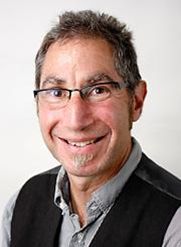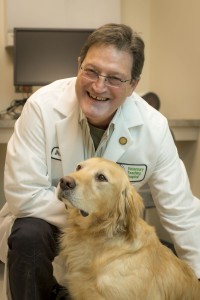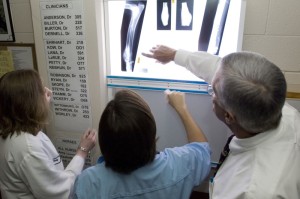Gwen Gorzelsky leads TILT
The Institute for Learning and Teaching has announced Dr. Gwen Gorzelsky as its new executive director.
The Institute for Learning and Teaching has announced Dr. Gwen Gorzelsky as its new executive director.
Everyday Hero Laura Snowhite is known for willingly and cheerfully taking on added projects. She loves working for CSU. "I'll work here as long as they let me stay," she says.
2014 marks two milestones in the Colorado State University School of Social Work.
As CSU upgrades to Canvas from RamCT Blackboard, instructors are encouraged to take advantage of the many in-person training sessions and comprehensive online resources available to them as they transition to this modern, easy-to-use learning management system with robust features to enhance teaching and learning.
[caption id="attachment_2871" align="alignright" width="181"] Barry Braun[/caption]
Barry Braun, the new head of the Department of Health and Exercise Science at Colorado State University, has been inducted as a fellow in the National Academy of Kinesiology.
Braun was inducted at the academy's 84th annual meeting, which was held Sept. 11-13 in Austin, Texas. The fellowship is an honorary award, restricted to 165 active members, that serves to recognize individuals who have made significant contributions to the fields of kinesiology and physical education. The academy’s statement of purpose declares that it strives to “encourage and promote the study and educational application of the art and science of human movement and kinesiology."
Before joining the faculty of CSU’s Department of Health and Exercise Science, Braun served as director of the Energy Metabolism Laboratory at the University of Massachusetts Amherst, where he was recognized with the “Spotlight Scholar” award in 2011. Braun’s area of study focuses on optimizing the use of exercise to oppose insulin resistance to prevent and treat Type 2 diabetes, as well as the effects of inactivity on metabolic health and activity/inactivity of hormonal regulation of appetite. He received his Ph.D. in nutritional sciences from the University of California, Berkeley in 1993 and did a post-doctoral fellowship at Stanford University Medical School.
Braun became head of the department in August.
Barry Braun[/caption]
Barry Braun, the new head of the Department of Health and Exercise Science at Colorado State University, has been inducted as a fellow in the National Academy of Kinesiology.
Braun was inducted at the academy's 84th annual meeting, which was held Sept. 11-13 in Austin, Texas. The fellowship is an honorary award, restricted to 165 active members, that serves to recognize individuals who have made significant contributions to the fields of kinesiology and physical education. The academy’s statement of purpose declares that it strives to “encourage and promote the study and educational application of the art and science of human movement and kinesiology."
Before joining the faculty of CSU’s Department of Health and Exercise Science, Braun served as director of the Energy Metabolism Laboratory at the University of Massachusetts Amherst, where he was recognized with the “Spotlight Scholar” award in 2011. Braun’s area of study focuses on optimizing the use of exercise to oppose insulin resistance to prevent and treat Type 2 diabetes, as well as the effects of inactivity on metabolic health and activity/inactivity of hormonal regulation of appetite. He received his Ph.D. in nutritional sciences from the University of California, Berkeley in 1993 and did a post-doctoral fellowship at Stanford University Medical School.
Braun became head of the department in August.
A Colorado State University professor has been named the recipient of the 2015 Institute of Electrical and Electronics Engineers’ 2015 Undergraduate Teaching Award.
Adam Daurio has been named the director of Administration for the Temple Grandin Equine Center Program.
Colorado State University employee Keith Jentzsch, Programs and Exhibitions Coordinator for the University Art Museum, was seriously injured in an assault near his home in Fort Collins on August 7. He faces a long recovery and rehabilitation period. A benefit reading and silent auction to help his family with medical bills has been scheduled for 6 p.m. Friday, Sept. 12, at the Downtown Artery, 252 Linden Street. If you are unable to attend the event, you can contribute to the fund set up for Keith.
Dr. Rodney Page thinks the dog is a cancer patient's best friend.
Not in the way you might think. Yes, dogs offer loyal companionship that might be especially meaningful to a pet owner facing disease diagnosis and treatment.
Yet there’s more. Page, as director of Colorado State University’s world-renowned Flint Animal Cancer Center, is leading a push within the field of cancer medicine to view dogs with naturally occurring disease as the ideal route to improving cancer treatment in people.
On Thursday, the Stephen J. Withrow Presidential Chair in Oncology will be officially conferred to Page during a reception on campus, a ceremony significant for what the chair will provide: funding to support studies that promise to help both pets and people with cancer.
An academic chair is a funding mechanism that provides investment revenue from an endowment – in this case, an impressive $6 million endowment – to boost teaching, research and service in a field of interest to donors. This chair is named for Dr. Steve Withrow, founding director of the CSU Animal Cancer Center, University Distinguished Professor and pioneer in the field of veterinary oncology.
Funding from the prestigious chair will allow Page to carry on Withrow’s legacy in treating pets with cancer and applying the knowledge gained to improve treatment for people with cancer.
What does that mean?
It starts here: The Animal Cancer Center books some 6,000 appointments each year with animal cancer patients, primarily dogs. Job No. 1 is healing these patients with medication, surgery, radiation and chemotherapy.
As Page often says, “Cancer is cancer,” meaning the disease appears, progresses and responds to treatment in much the same way no matter the species. So it makes sense that human treatment should benefit from the vast medical data and knowledge gained in the course of treating pets.
Withrow was an early proponent. When Page took over as center director in 2010, he likewise took up the mantle of canine oncology within the sphere of translational medicine, meaning medical knowledge that may be translated from one species to another.
One-on-one with Page [caption id="attachment_12101" align="alignright" width="200"] Dr. Rod Page, director of the Flint Animal Cancer Center.[/caption]
Dr. Rod Page, director of the Flint Animal Cancer Center.[/caption]
Page, a CSU veterinary alumnus who was mentored by Withrow, explains the translational role of canine oncology – and more – in the following Q&A.
What does it mean to you to have more than 700 people contribute to this chair you’re holding?That’s pretty phenomenal, isn’t it? The chair is an honor to Steve, and that’s the most significant part of this. The relationship Steve has had with hundreds of thousands of students, residents, clients, people who call from all over the world for his opinion on their cases, really is unique. I don’t think I’ve known anyone else who has devoted that level of commitment to this profession. It shows in the core values that Steve established for our cancer center, of vision, integrity and passion. Hundreds of donors have joined in support of those values.
In what ways are you carrying on Dr. Withrow’s legacy?I hope I can continue to foster compassion for clients and their pets, and I hope I can emulate Steve’s focus and understanding about what’s important. Since I returned to CSU, I’ve learned a lot more about the spirit of the Animal Cancer Center, the teamwork and the focus. People here support each other, and that creates a feeling of shared respect. That’s something that has to continue.
Dr. Withrow saw the canine oncology patient very early in his career as a model for understanding human cancer. That has continued at the Flint Animal Cancer Center, and is part of the legacy you carry on. Yet, it’s still a concept not a lot of people know about. Can you explain?Cancer is cancer. The same mechanisms that result in cancer in humans are operative in dogs, and are operative in other animals as well. The thing that is valuable – and I believe will continue to grow in its value – is the information that can be gathered through well-done clinical studies in companion animals with naturally occurring cancers. The ability to look at why a tumor spreads or why a tumor becomes resistant to drugs in a relevant environment is how we foresee our scientific program growing in the future.
What’s your elevator speech if you were to meet an oncologist in human medicine and they hadn’t been exposed to the concept of using dogs with cancer as a model for understanding human cancer?It starts with noting that dogs share our environment. They’re exposed to the same sorts of insults that we are exposed to, and they develop naturally occurring, genetically based diseases more than any other species next to man. More than 400 diseases have been identified as genetically based, and many of those are cancer. In addition, dogs age much more rapidly than people, so tumors develop much more rapidly. This means that, as we treat our canine patients, we can ask and answer the same questions but in a fraction of the time that it takes in a human study.
Talk a little bit about the comparative oncology trials that are ongoing at the Flint Animal Cancer Center. How would you summarize the overall goal of those trials?Whether the study is about improving animal health, or whether it is a lead-in to a human trial, the focus is always on innovation – trying to find ways to do it better, trying to overcome limitations on treatment for cancers. It’s all about improving the bottom line of cancer treatment. We have trials that are conducted for cancer drugs, radiation, new diagnostic tests, and all are part of moving the profession forward for the benefit of pets and people.
Could you point to three major breakthroughs at the Flint Animal Cancer Center that have had a direct influence on human cancer treatment and its effectiveness? [caption id="attachment_12102" align="alignright" width="300"] Dr. Steve Withrow, studies a patient’s radiographs with colleagues.[/caption]
Dr. Steve Withrow, studies a patient’s radiographs with colleagues.[/caption]
The home runs that have been provided already include an understanding of radiation response for head and neck cancer, which was done by Dr. Ed Gillette in the ’90s. Up until the advent of very new technologies, that was the basis for the treatment protocol. There’s also the limb-sparing surgery for cancer patients that was advanced by Steve and Dr. Ross Wilkins, a human orthopedic surgeon. It has allowed patients, primarily children, to keep their limbs when undergoing cancer surgery and is recognized as the standard for kids with bone cancer. Another example is the development of a product that stimulates the immune system and has resulted in an improvement in survival for kids with bone cancer by delaying metastasis. That product is currently available, but not yet in the United States because of regulatory issues.
Of some of the studies you currently have under way, is there something that shows particular promise for advancing human cancer treatment and its understanding?We’re involved with a study, funded by the National Cancer Institute, which involves multiple institutions and is evaluating compounds for the treatment of lymphoma, a cancer that affects the immune system. We are looking at the response to treatment in dogs with lymphoma, and we’re also looking at how well this product will work at the microscopic level.
I also have to ask you: Are you a dog lover? If so, how has that influenced your work as a veterinary oncologist?I am a dog lover – and a cat lover, and a bird lover, and a wildlife lover. I started out as a bioscience major in college and was uncertain of the next step so I enrolled in a program at a medical school. I wanted to find out what it was like in medical school, and with that experience I decided I wanted to be a veterinarian because of my love for animals. I’ve also had wonderful veterinary mentors my entire career, and that helped me tremendously.
Flint Animal Cancer CenterMore than 2,500 Poudre School District students will begin their school year with wide smiles and new supplies thanks to School is Cool.
School is Cool, started at CSU 23 years ago, provided backpacks and grade-specific supplies to 2,511 students. More than 110 volunteers spent four days organizing materials, stuffing backpacks and delivering them to PSD schools.
This year 42 PSD schools will receive backpacks, including every middle school and high school. The program has distributed nearly 35,000 backpacks since it was launched by CSU employees in 1992.
Corporate, campus supportThe School is Cool committee has partnered with the CSU Bookstore, the Bohemian Foundation, Hewlett-Packard and other organizations to expand its reach. Still, the majority of funding over the past 23 years has come from CSU employees.
Committed to community“We are lucky and proud to call Fort Collins our home, and as a university committed to providing access to education,  School is Cool is an amazing opportunity for CSU to help children in our community get the tools they need to succeed,” said Tom Milligan, CSU’s vice president for external relations. “The CSU community truly believes in education, and through this wonderful program, our staff, faculty and students get to demonstrate that belief in a way that makes a real difference in the lives of school children in our hometown. We are very proud of this great program and thank the hundreds of individuals and the sponsors who make it possible.”
School is Cool is an amazing opportunity for CSU to help children in our community get the tools they need to succeed,” said Tom Milligan, CSU’s vice president for external relations. “The CSU community truly believes in education, and through this wonderful program, our staff, faculty and students get to demonstrate that belief in a way that makes a real difference in the lives of school children in our hometown. We are very proud of this great program and thank the hundreds of individuals and the sponsors who make it possible.”
To support School is Cool, send your gift to: School is Cool, Colorado State University Foundation, 9100 Campus Delivery or donate online.